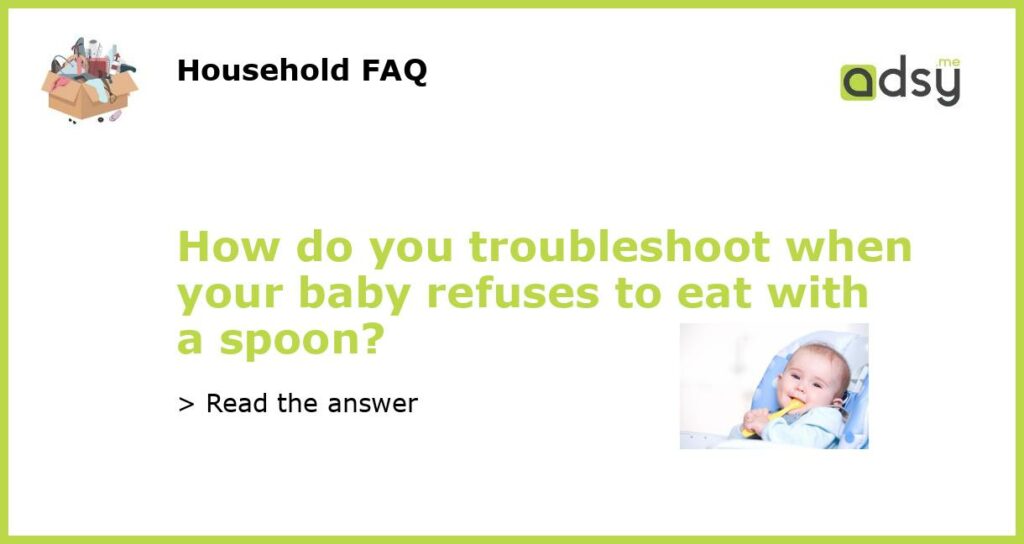Understanding why your baby refuses to eat with a spoon
Feeding your baby is one of the most important things you do as a parent. But what happens when your baby refuses to eat with a spoon? This can be frustrating and worrisome, especially if it persists. The first step to addressing this issue is understanding why your baby may be protesting the spoon.
Some reasons why your baby may not be taking to the spoon could be teething, a strong gag reflex, being over or under stimulated, or simply just not being ready for solid foods. Identifying the root cause can help you come up with a plan to tackle this problem.
One thing to keep in mind is that every baby is different, and may have different preferences when it comes to feeding. It may take some trial and error to find the right approach to help your baby take to the spoon.
Offering alternative feeding methods
If your baby refuses to eat with a spoon, it may be helpful to offer alternative feeding methods. You can try using your fingers, offering soft foods that can be easily gummed, or trying a different type of spoon.
Some babies may prefer feeding themselves using a baby-led weaning approach. This involves offering soft, finger-sized foods that your baby can pick up and self-feed.
Making mealtime fun and engaging
Eating can be a fun and engaging experience for babies, and making mealtime a positive experience can help encourage your baby to eat with a spoon. You can try singing songs, making funny faces, or playing games during mealtime to make it more exciting.
It is important to note that force feeding your baby can be counterproductive and lead to negative associations with mealtime. If your baby is uncomfortable or protesting, take a break and try again later.
Consulting with a healthcare provider
If your baby continues to refuse the spoon and is not gaining weight, it may be a good idea to consult with a healthcare provider. They can help determine if there are any underlying medical issues that need to be addressed.
Additionally, they can provide guidance on proper feeding techniques and offer suggestions on how to make mealtime a positive and enjoyable experience for both you and your baby.
Keep in mind, this is temporary
Remember, this is a temporary stage in your baby’s development. As they grow and develop, they will become more comfortable with new textures and forms of feeding. With patience, persistence, and a little bit of creativity, you can help your baby overcome their aversion to the spoon and enjoy mealtime.






